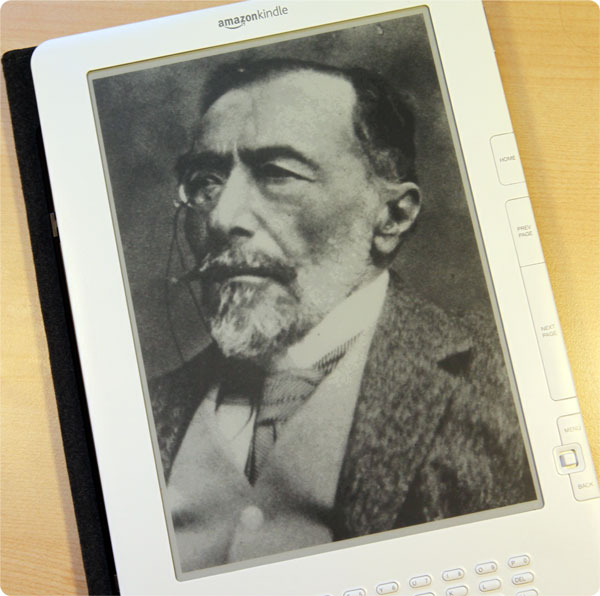Joseph Conrad is famous not only for his works adapted into well-known films such as Apocalypse Now and Sabotage; he also stands out as he was a Polish-born novelist who learned to speak English fluently in his twenties and then wrote in English, too. Many books are available now in Kindle edition, some of them for free.
Heart of Darkness first appeared as a series in Blackwood’s Magazine in 1899 and was published as a novella in 1902. It was partially based on Conrad’s experiences in the Congo as he served as a steamer captain. Though the book is famous on its own, Francis Ford Coppola made it even more well-known, having adapted the novella into Apocalypse Now changing the Congo to Vietnam and Cambodia during the Vietnam War. “Assigned by an ivory company to take command of a cargo boat stranded in the interior, Marlow makes his way through the treacherous forest, witnessing the brutalization of the natives by white traders and hearing tantalizing stories of a Mr. Kurtz, the company’s most successful representative.”
The Secret Agent: A Simple Tale (published in 1907) is set around the life of Mr. Verloc, a London businessman and spy. The book is different from other Conrad’s works as it does not deal with the usual seafaring themes; instead, it is considered a political novel since it describes revolutionary groups and anarchists. Alfred Hitchcock had adapted the book for his movie Sabotage released in 1936. “This absurdist story is noted for its adept characterizations, melodramatic irony, and psychological intrigue.”
Lord Jim (published in 1899-1900 in Blackwood’s Magazine) is believed to be based on true facts, though Joseph Conrad never admitted that openly. As a ship with pilgrims travelling to Mecca is about to sink, the crew members abandon the vessel and the passengers. Having faced the court for this crime, the first mate Jim redeems his guilt in a remote settlement in the Indonesian archipelago. “The novel, which explores the nature of the human spirit, is a delicately crafted picture of a character who reaches the status of literary hero.” The book was twice adapted into movies: by Victor Fleming in 1925 and by Richard Brooks in 1965.
